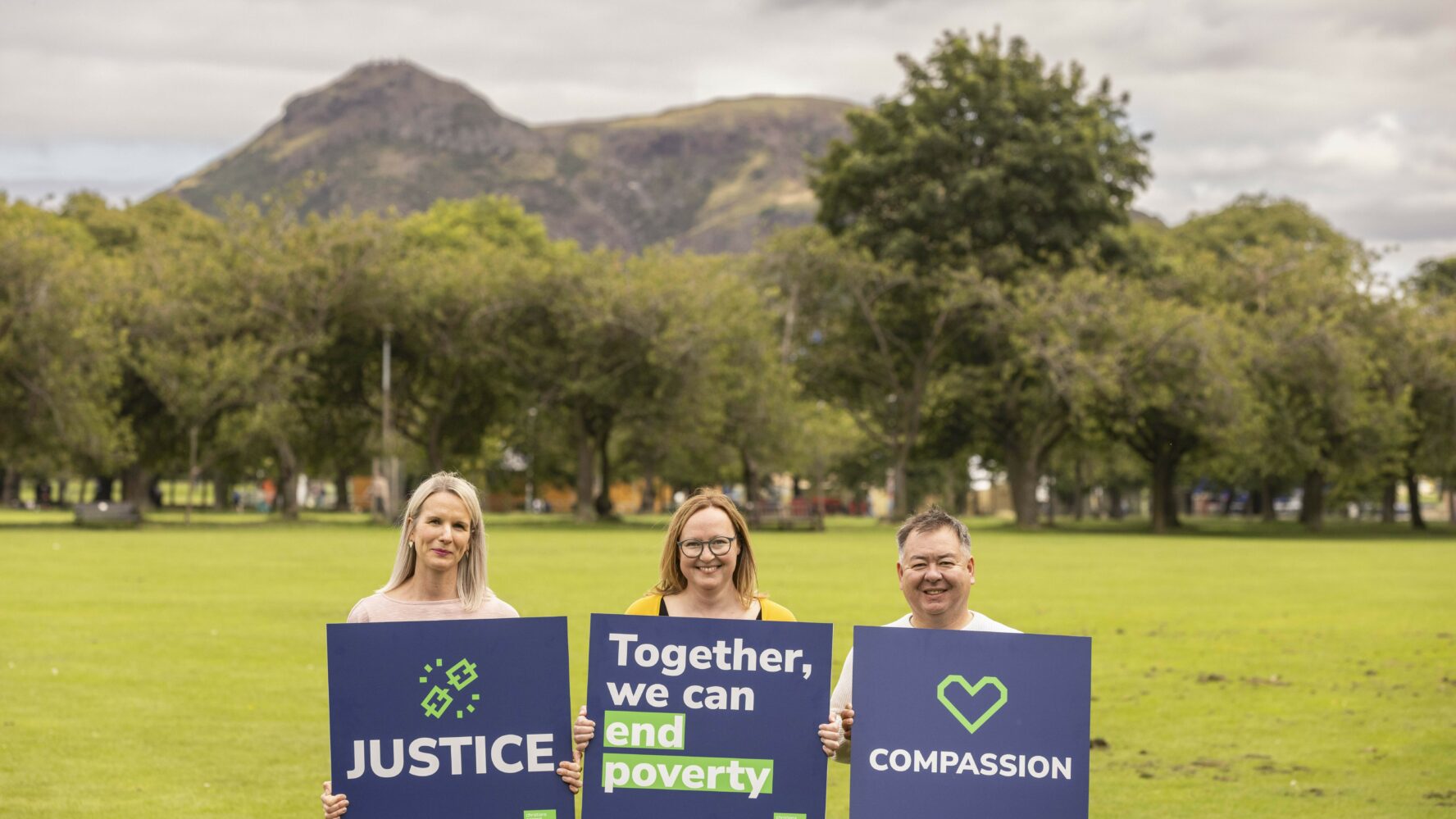
The devastating impact of poverty continues to make me both heartbroken and outraged. It fires up the justice fighter in me and motivates me to pursue an end to poverty, to imagine a Scotland where everyone has the opportunity to flourish.
Scotland was founded on justice and compassion. These are shared values that I have used many times in my work to frame the discussion on poverty. Inviting people to picture what a just and compassionate Scotland could look like. I believe in the power of justice and compassion. It is because of compassion that I am motivated to pursue justice.
But if I’m really honest, until recently, I believed that justice was the more important of the two. Pursuing social justice has shaped my career, it motivates me to keep going on the hard days. When I hear of injustice, it impacts me deeply and I am moved to act. However, at times, I can be guilty of doing this without stopping to fully understand the problem or work out if my solution is the right one.
Compassion in action
In August I was in Edinburgh filming for Challenge Poverty Week. We invited six people, from a variety of backgrounds, experiences and places, to come together in pairs to talk about poverty in Scotland. As we were filming, I was struck by something Holly (one of the storytellers in our video) said: ‘without the compassion of other people… I wouldn’t be sitting here talking to you.’
A few weeks later, I headed to Aberfeldy to visit our Highland Perthshire Debt Centre. There I heard about a gentleman who is only alive today because of the compassion and support he received from his Debt Coach, Angela.
Both of these encounters impacted me profoundly and set me on a journey of seeking to better understand compassion. I listened to a sermon on compassion as a characteristic of God, from St Mungo’s church by Andrew Quinn. Andrew recounted many examples of God’s compassion throughout the Bible. Time and again, God’s compassion led to action.
For the first time, I was invited to think about the cost of compassion, as Andrew said: ‘When we allow ourselves to be filled with compassion, we forget about ourselves. It is a selfless act.’ Feeling, and acting, with compassion forces us to view the world beyond our own experience of it. It can change our perspective and compel us to act.
Compassion is not pity
When we allow ourselves to feel compassion, we can no longer claim ignorance. It changes us. As Brené Brown says in her book Atlas of the Heart:
Compassion is the daily practice of recognising and accepting our shared humanity so that we treat ourselves and others with loving-kindness, and we take action in the face of suffering.
I think that in order to understand what compassion is fully, it’s important to acknowledge what it is not. Compassion is not pity and it cannot exist alongside judgement.
In her research, Brené found that pity separates us from others. Feeling sympathy for someone and pitying them, removes us from the suffering of that person. It places our feelings onto them and can trigger shame. It lets us off the hook and buys into ‘a belief that the suffering person is inferior.’
Why we need compassion
From my own experience of living in poverty, I know this to be true. Being on the receiving end of someone’s pity, however well-intentioned it was, made me feel worse. It left me feeling embarrassed and ashamed of a situation that was beyond my control and led me to often hide how hard things really were. At CAP, we know that shame stops people seeking debt help, keeping them trapped in impossible situations.
In his sermon, Andrew says: ‘If we see someone in a predicament, someone hurting, someone broken, judging them and feeling compassion for them are, I think, mutually exclusive. If your first instinct is to judge then you’ll find it very hard to develop compassion in your life.’
Compassion places us as equals, it invites us to walk alongside each other with an empathic response. It does not impose our own experience onto someone else, but makes space for theirs. As a Christian, I believe that showing compassion to others is a practical and powerful example of God’s love in action. Compassion has the power to save lives.
When working in harmony with justice, compassion ensures that we campaign for the right changes. It enables us to learn from people with experience of poverty in a way that is safe and empowering as we co-design solutions. In our film for Challenge Poverty Week, we highlight some of the ways that poverty is impacting people and how we can all play a part in ending it. I invite you to watch it now with an openness to understand the experiences of others and a willingness to be moved by compassion and justice.




